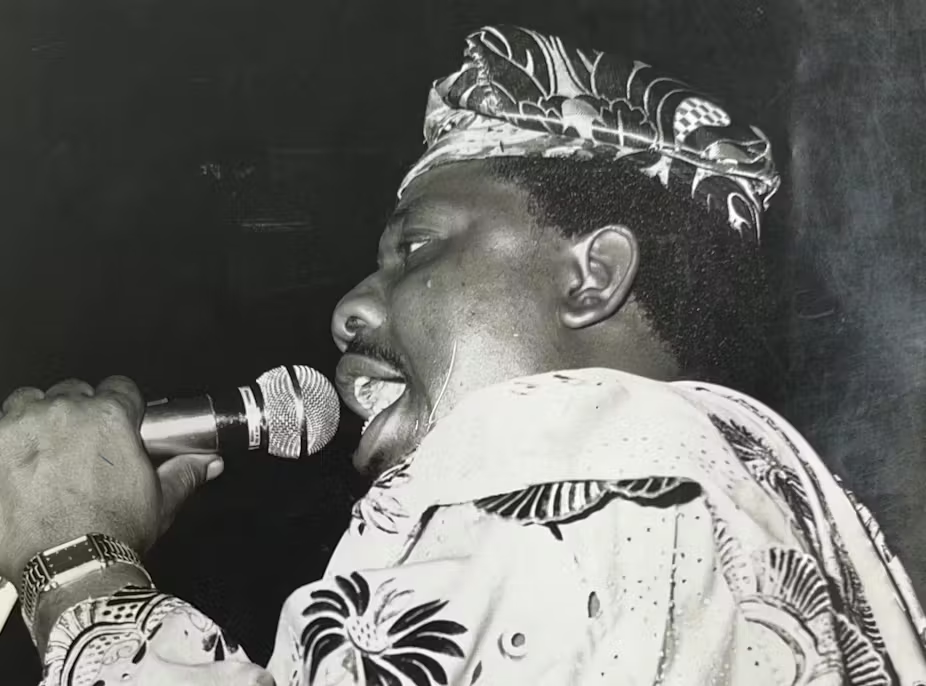Fuji music in Nigeria: new documentary shines light on a popular African culture

Fuji music in Nigeria: new documentary shines light on a popular African culture
Nigerian singer Síkírù Àyìndé Barrister (1948-2010) pioneered fújì, a Yorùbá genre of popular dance music. In February 2024, historian Saheed Aderinto’s documentary on the musician’s life and times premiered. The Conversation Africa’s Wale Fatade asked Aderinto about the film and the music it brings to our attention.
What is fújì music?
Fújì fuses Islamic philosophy and wordsmithing with Yoruba poetry and meaning-making to create sound, idioms and recreational habits. It does this across social classes, from the wealthy in the corridors of political power to the poor at the fringe. Its messages, politics, performance styles, space and sophistication reflect a wide range of realities.
However, fújì did not begin as a secular and commercial sound. Its musical ancestor, wéré, was a seasonal Islamic performance during Ramadan. Wéré’s origin dates to the 19th century or earlier when Islam established firm roots among the Yoruba. The Yoruba are one of the numerous ethnic groups in Nigeria.


